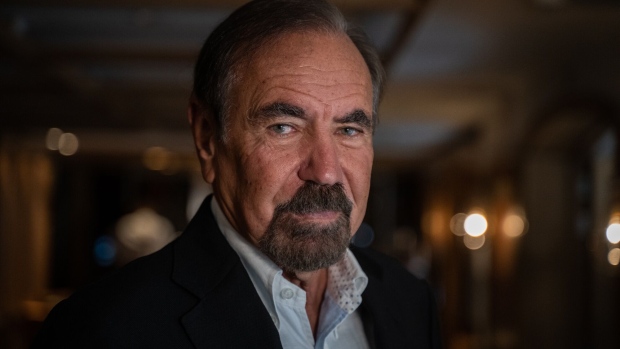Jul 3, 2024
Billionaire Perez Slams DeSantis for Eroding Miami’s New Appeal
, Bloomberg News

(Bloomberg) -- Billionaire Jorge Perez has spent hundreds of millions of dollars of his real estate fortune to make Miami a magnet for the arts, determined to show there’s more to his town than partying.
Now, he says, Florida Governor Ron DeSantis is undoing his efforts with the stroke of a pen. DeSantis, a Republican, stunned the state’s arts community last month by axing all $32 million of funding for a state program that provides grants for music, theater and culture.
“This is just a horrible message to send,” Perez, who’s known as Miami’s condo king, said in an interview. “We were long a society of fun and sun, but we’re no longer that — we don’t want that.”
The governor’s surprise move is already removing a financial lifeline for hundreds of smaller orchestras, theater troupes and museums. DeSantis is yanking state support just as demand for cultural offerings is soaring, with a wave of affluent transplants from artsy powerhouses such as New York and Chicago turning Miami into a financial capital touted as Wall Street South.
Perez has a lot of skin in the game: He’s donated $80 million to the city’s largest art museum and his surname is on the door.
“A lot of the people who are coming from New York are involved in the arts, participate in the arts,” said Perez, a prolific political donor who gives mostly to Democrats but has also contributed to Republicans. “We want to be a serious city, and serious means that we have great education and we have great exposure to culture.”
‘Inappropriate Use’
DeSantis told state lawmakers June 12 that his decision to defund the arts was part of a broader reduction in government spending. In his budget letter, he also played up his support for so-called culture war initiatives such as expanding private-school voucher programs, going after “nefarious” corporate environmental and social policies, and making Florida “inhospitable” to undocumented immigrants.
Last week, the governor offered more insight into his move on arts funding, saying at a news conference that some funds went to a festival that in his view had too much sexual content.
“When I see money being spent that way, I have to be the one to stand up for taxpayers and say, ‘You know what, that is an inappropriate use of taxpayer dollars,’” said DeSantis, who declined requests to elaborate.
DeSantis is no stranger to criticism from his state’s moneyed elites. He clashed with wealthy Republican donors over a six-week abortion ban and with Walt Disney Co. over Florida’s “Don’t Say Gay” law, which restricts the teaching of gender identity and sexual orientation in classrooms.
He then shrugged off criticism from billionaire Ken Griffin, who called the dispute with Disney “pointless.” Griffin, the founder of the hedge fund Citadel and market-maker Citadel Securities, announced two years ago that he would move his companies to Miami from Chicago, providing a big boost for South Florida’s financial aspirations.
Funding Squeeze
In the state’s arts scene, hundreds of small nonprofit programs from Miami to the Florida panhandle are responding to the funding cuts by paring expenses or raising money from donors — like Perez.
Their plight puts Florida in stark contrast with states like New York, which has an $82 million grants program for the arts.
Closer to home, Miami Beach sold $100 million of bonds to reverse its image as a center of spring break debauchery. Those funds included money for the Miami City Ballet, which lost a state grant because of DeSantis’ cuts.
“If we talk about New York, Chicago, or other major communities, they have this component built in to their lifestyle already,” said Richard Milstein, a lawyer who chairs the board of the Adrienne Arsht Center Trust. “So the question is, ‘Is there that component within our lifestyle in Miami-Dade County or the rest of Florida?’” Milstein said.
The Adrienne Arsht Center for the Performing Arts is Miami’s largest venue for theater, music and more. With a $50 million operating budget, it has a long list of deep-pocketed patrons to offset the $70,500 grant that DeSantis just took away, and Milstein is already asking donors for help. But for most grant recipients, even a few thousand dollars makes a difference, he said.
One example is Elaine Rinaldi’s Orchestra Miami, which puts on multiple free shows each year and helps teach music to thousands of public school children. A state grant of $34,866 would have funded two months of her operations, she said. Unless donors step in, she’ll have to slash her own salary, cut some of her part-time staff members or cancel some free shows.
“People with a lot of serious money are moving to Miami and they want quality of life, art, music — so in my mind this makes no sense,” Rinaldi said. “It’s just so shocking, unexpected, devastating.”
--With assistance from Amanda Gordon.
©2024 Bloomberg L.P.

